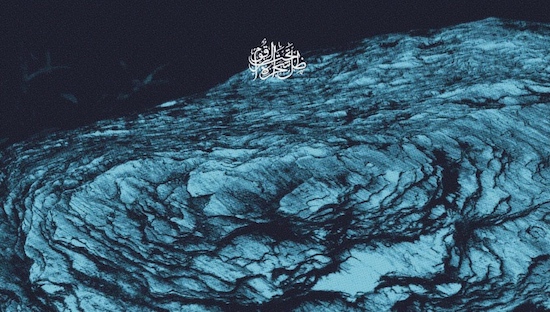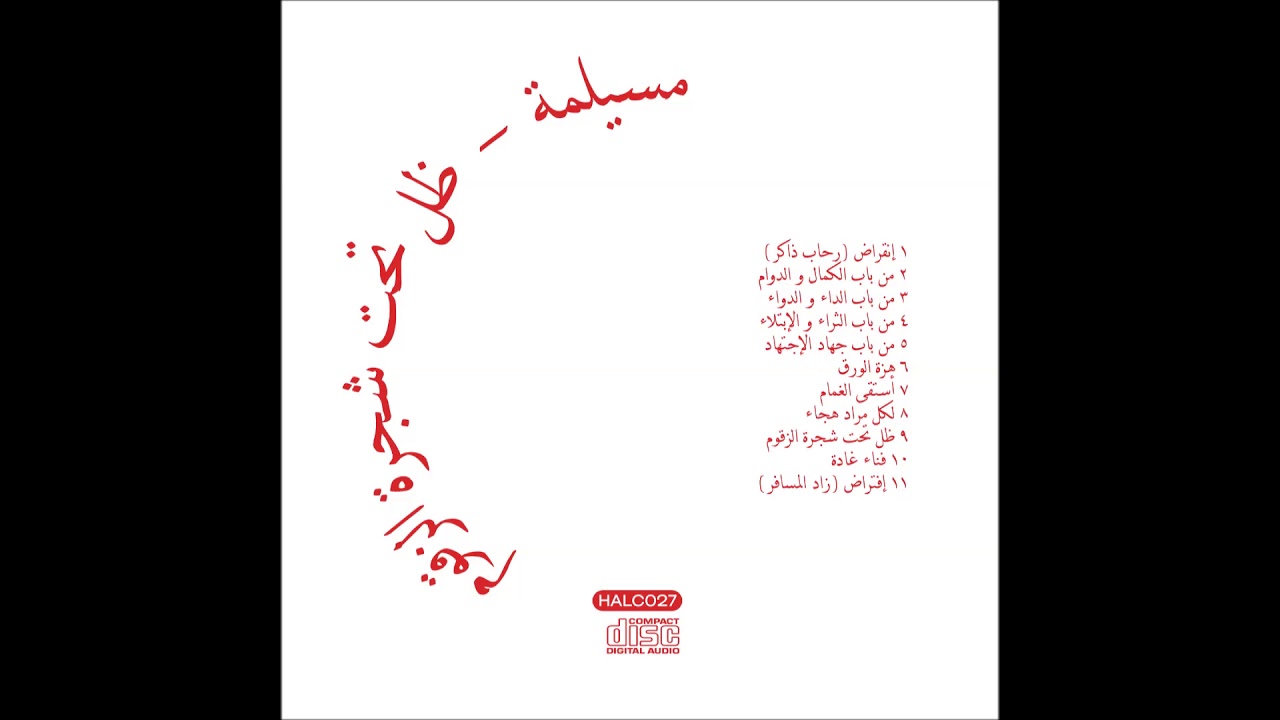It is a rare that an album is as immediately arresting as Dhil-un Taht Shajarat Al-Zaqum, especially given how mysterious it is. The Mecca, Saudi Arabia-based producer MSYLMA leaves few traces across the internet and, aside from a notable vocal on Zuli’s Terminal album, one of the highlights of last year, there’s not much out there to know what drives this singular release, apart from a vague notion that it’s something of a coming-of-age tale that takes in pre-Islamic and Quranic poetry and culture and melds them to modern electronic and grime sensibilities. With repeated listens, it transforms into a deliriously narcotic ear-worm that can’t be avoided.
Part of this is down to MSYLMA’s vocals, which are imbibed with such emotion that they are frequently overwhelming. Even on the caustic, industrial clatter and post-grime crunches of ‘Min Bab AlKamal-i w AlDawam’, the singer’s voice frequently breaks with agonised pathos as he pushes against his own musical backing by lurching out of time with the fuzzed-out beats and surges of synthesizer grime. It’s a stark and harsh piece, much at odds with opener ‘Inqirad (Rihab-U Dhakir)’, a gorgeous soul-inflected ballad on which the vocals echo and swirl like voices from heaven.
The rapid global flows of music since the advent of the internet have seen ideas and technology spread in such a way that finding references in modern electronic styles is easy, regardless of where a piece of music was created. I’ve already mentioned grime and soul, but MSYLMA also conjures up echoes of the grim post-punk of the 23 Skidoo/SPK variety on the brooding ‘Min Bab AlTharaa-i w Allbtilaa’, nods to the stripped-down electronica of a Logos or a Raime on ‘Astaqi AlGhamam’ and even takes a side-step into minimalist r’n’b on ‘Hazat-u-l-Waraq’. But by deploying his vocals so prominently and unabashedly emotionally, he reaches past common “Western” tropes into traditions that are unique to the Middle East. This isn’t fusion; this is something perfectly formed in its own environment. You get the sense that even if industrial music, dubstep, and techno had never existed, Dhil-un Taht Shajarat Al-Zaqum would have somehow made it into MSYLMA’s psyche and then out into the world.
Even if – like me – you need to rely on hearsay and your own sense of good faith to make sense of the narrative on Dhil-un Taht Shajarat Al-Zaqum, the rewards are astonishing. MSYLMA’s voice drips with sadness, anger, despair and hope, each line delivered in a wash of reverb and echo to make matters all the more otherworldly. To delve into Dhil-un Taht Shajarat Al-Zaqum is to submerge oneself into a dream world, drifting along or swallowed whole by Myslma’s bold combination of ragged electronics, subtle melodies and impassioned delivery. On ‘Li-Kul-i Murad-in Hijaa’, this explodes into a cosmic vortex as free-form drums, crackling guitar and buzzing bass all collide like a hurricane sweeping down on a house.
The album closes, however, on a beatific note: MSYLMA’s soaring voice accompanied by a simple but effective piano melody that will break your heart. Dhil-un Taht Shajarat Al-Zaqum is a beguiling and often baffling journey that still holds many mysteries for me after repeated listens, but I couldn’t keep away if I wanted to.



